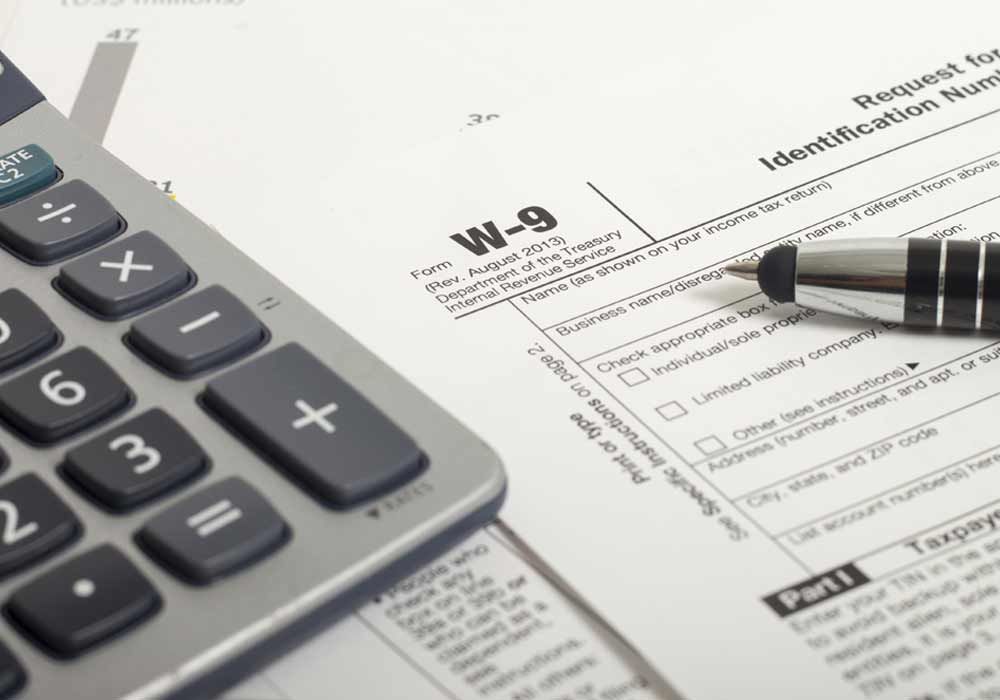Going through a divorce involves various complex decisions, and one significant aspect is determining what to do with the marital home. In many cases, one spouse may choose to buy out the other's share of the house. This article will provide a detailed guide on how to buy someone out of a house in divorce, exploring different options, steps to take, and important considerations throughout the process.
Options with the Marital Home
After a divorce, individuals typically have three main options regarding their house:
Buy out your ex-spouse's equity
If you and your ex-spouse jointly owned the home, you both likely have equity in the property. The equity is usually divided equally between both parties. If you choose to buy out your ex-spouse's share, you will need to pay them for their portion of the house. The amount of equity your ex-spouse is entitled to may vary depending on your location and whether you owned the house before getting married. It's a good idea to consult a divorce attorney to help you navigate these factors.
Acquire their share by refinancing the mortgage
If you lack the funds to purchase your former partner's portion of the house, refinancing the mortgage is an option. Refinancing enables you to access the equity you have accumulated and utilize it to purchase your ex-spouse's share.
Another advantage of refinancing is that it removes your ex-spouse's name from the mortgage, absolving them of any obligation to make payments. This is critical even if you have enough money to purchase their share.
To qualify for the refinance, you must demonstrate to the lender that your income is adequate to cover the mortgage payments. If you are unable to meet the income requirements, selling the property or coming up with an alternative arrangement may be necessary.
Additionally, when considering a property, it's important to take into account the ongoing expenses linked with maintaining it. Costs such as utilities and upkeep can quickly add up, particularly if you're in charge of them alone. As a result, ensure that you take these expenses into account when making your decisio
Sell the home and split the proceeds
If you and your ex-spouse don't have an emotional attachment to the property or the financial resources to buy each other out, selling the house and splitting the proceeds is often the best option. This allows for a clean and fair division of the net equity.
In some cases, if you and your ex-spouse are unable to come to an agreement on how to split the house, the court may order you to sell it as part of the divorce proceedings. This is particularly common in community property states, where assets are typically divided equally between both parties.
Steps to Take with Your Home after a Divorce
Determine the best way to sell
If you need to sell your home quickly, consider reaching out to a cash buyer as they can provide the fastest option. However, it's still advisable to consult with a real estate agent. They can assist you in appraising your property and determining its value on the open market. If you're short on time, you can ask your agent to present you with cash offers from local buyers who have been vetted.
Work with a realtor
Collaborating with a realtor can be beneficial in selling your home for a higher price. Openly communicating your needs allows the agent to tailor their services to your specific situation. Their expertise and network can help you sell your home more efficiently and effectively during a divorce.
Learn the laws in your state
To ensure you make informed decisions about your house during a divorce, it's crucial to learn about the laws in your state. Here's what you need to know:
Community property state
If you reside in a community property state, the general rule is that all assets and debts accumulated during the marriage are divided equally between both spouses. However, there may be exceptions for assets acquired before the marriage. It's important to consult with your attorney to determine whether your house falls under community property or if there are any specific considerations.
Equitable distribution state
In an equitable distribution state, the division of assets and debts is based on what the court considers fair and just, rather than an automatic 50/50 split. If you and your ex-spouse are unable to reach an agreement outside of court, a judge will make the final determination on how your property, including the house, will be distributed between you.
How to Calculate Buying Someone Out of a House
To calculate the cost of buying someone out of a house, follow these steps:
Get a House Appraisal
Begin by arranging for a professional appraisal to determine the current value of the house. It's crucial to agree on an appraiser together to avoid any potential disputes about the appraisal results.
Determine the Outstanding Mortgage
Contact your mortgage lender to find out the remaining amount you owe on the house. Once you have this information, you can calculate your equity by subtracting the mortgage obligation from the appraised value.
Divide Household Possessions
Consider the value of furniture, appliances, and other household items. Decide whether you and the other party will split them equally or if one person wishes to buy them out. If one person intends to buy them out, assign a value to each item.
Calculate the Buyout Cost
Now, it's time to calculate the cost of buying out the other person's share. To do this, use the following formula: Net Equity = (Appraised Value - Mortgage Obligation) / 2.
Start by subtracting the mortgage obligation from the appraised value to determine the total equity. Then, divide this amount in half to obtain the net equity for each party. If you're not splitting the furniture equally, include its value in the calculation. Alternatively, you can use a divorce buyout calculator tool for convenience.
How Do You Buy Out a House in A Divorce?
When it comes to buying out a house during a divorce, you typically have two primary options.
The first is to pay the remaining balance and equity in full using cash. Alternatively, you can choose to refinance your mortgage and utilize the equity to buy out your ex-spouse.
If you happen to have enough cash readily available, you can directly purchase your ex's share of the equity. For instance, in the earlier scenario, if you possess $100,000, you can retain your existing mortgage by removing their name from it.
However, since many individuals don't have sufficient assets to buy out their ex-spouse outright, refinancing becomes a common solution. Using the same example, this would involve acquiring a $300,000 loan.
Remember, buying out a home involves more than just the purchase price. While you won't have to pay commission fees for a simple title transfer, you'll still be responsible for expenses like title transfer taxes, appraisal fees, and potentially more.
It is advisable to devise a plan to divide these transfer costs equally, ensuring that you don't end up paying more than your fair share.
How can I go about purchasing a house with the intention of selling it later?
When considering buying out your ex-spouse and then selling the house, it's important to be aware of the potential expenses and fees involved. Here's what you need to know:
Selling Fees
Selling a house typically incurs fees, which can amount to around 10% of the purchase price. These fees include real estate agent commissions, closing costs, and other related expenses.
State Regulations
In some states, the buying spouse may be entitled to collect half of the broker's fee from the selling spouse when taking over their equity. However, this provision may not apply in all states.
Sole Responsibility
If the house is solely in your name after buying out your ex-spouse, you will bear the full responsibility for all closing costs and selling fees. This means you will need to cover these expenses out of your own pocket.
Selling Together
Consider selling the property jointly with your ex-spouse as an alternative to completing a buyout. This approach allows you to divide the expenses associated with selling the house, alleviating the potential financial strain of covering these costs on your own. Working collaboratively with your ex-spouse, you can ensure a smooth and efficient sale process while also mitigating the financial burden.
How does buying out a house change when there are kids involved?
Custodial Parent's Rights
In many cases, the parent with custody of the children may be allowed to remain in the house without having to buy out the other spouse. This is often done to provide stability for the children.
Financial Support
Instead of a traditional buyout, the noncustodial parent may contribute to the costs of the house as a form of child support. This can help ensure that the custodial parent has the necessary financial resources to maintain the home and provide for the children. The specifics of these arrangements, including the amount and duration of financial support, can be determined through discussions with your lawyer and possibly with the involvement of the court.
Legal Guidance
It's crucial to consult with a family law attorney who specializes in divorce and child custody matters. They can provide guidance based on your specific situation and the laws in your jurisdiction. They will assist you in navigating the complexities of determining parenting time, child support, and any necessary agreements related to the house.
Transition Period
If you are not the custodial parent, there may be a transition period before you can buy out the house or sell it. This allows your ex-spouse and the children to find alternative living arrangements. The duration of this period is often determined by a judge based on the best interests of the children and other relevant factors.
Alternatives To Buying Someone Out of a Home
If buying someone out of a home doesn't seem like the right solution for your situation, there are alternative options to consider:
Co-ownership
Instead of buying out the other person, you can choose to continue co-owning the home. This can be a suitable arrangement if you are comfortable with co-parenting or need more time to make long-term decisions. It allows both parties to maintain a stake in the property until a future agreement is reached.
Sell the House and Split Profits
Another option is to sell the house and divide the proceeds between both parties. While this choice may be emotionally challenging, especially for children, it ensures that both individuals receive their fair share of the property's value. It can provide a fresh start for both parties and allow for a clean financial separation.
Solo Ownership
In certain cases, one person may choose to take sole ownership of the home. This option can expedite the divorce process, but it's important to consider the financial implications carefully. Taking full ownership of the house may have significant financial consequences, depending on your specific circumstances. It's advisable to consult with a financial advisor or real estate professional to assess the potential impact on your personal finances.
Conclusion
Navigating the process of buying someone out of a house in divorce requires careful consideration of various factors, including financial implications, legal requirements, and personal circumstances. This comprehensive guide has provided an overview of the options available, steps to take, and important considerations throughout the process. It is crucial to consult with professionals such as real estate agents, appraisers, and family law attorneys to ensure a smooth and fair buyout process.





